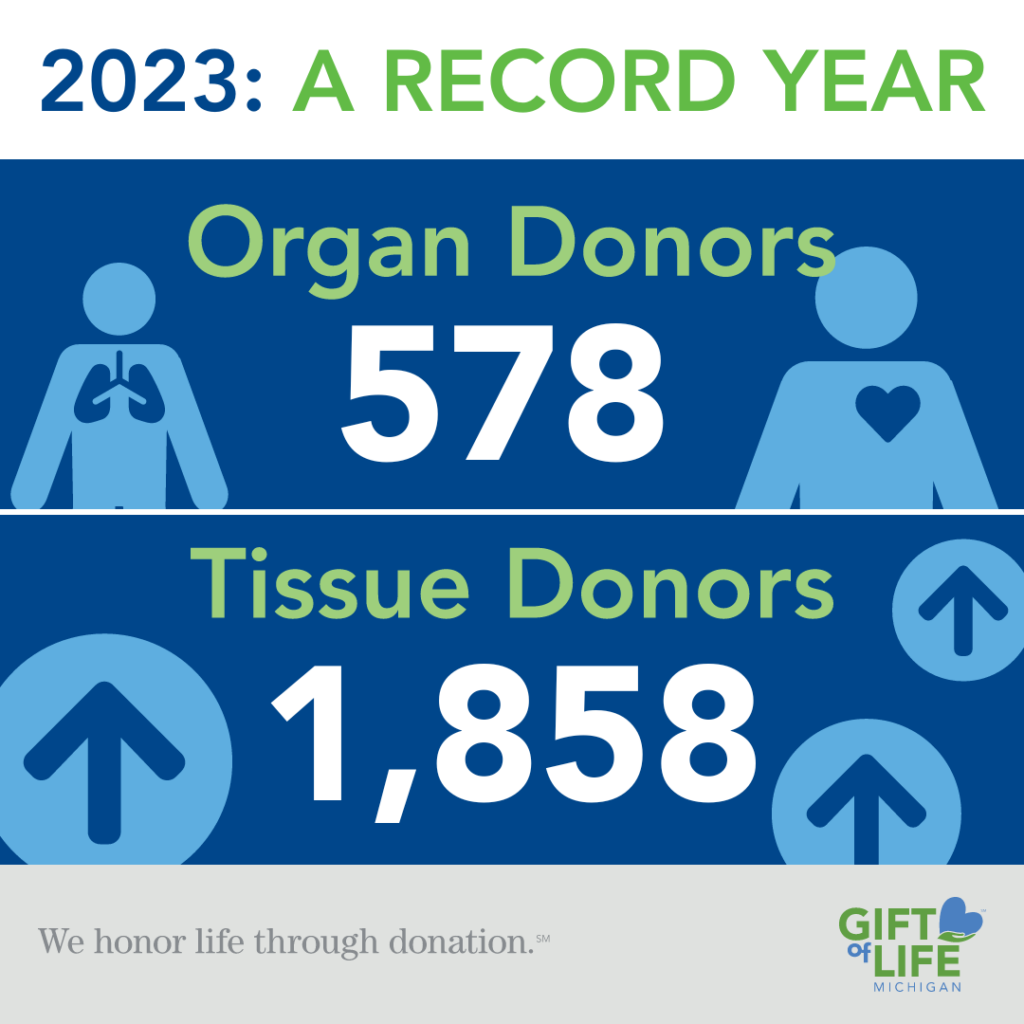In the wake of the rapidly spreading new strain of coronavirus, COVID-19, experts urge transplant recipients to use extra caution to protect themselves and their loved ones.
The virus, first detected last year, is particularly dangerous to the elderly and those with compromised immune systems, and many organ transplant recipients fall under that latter category. There is no direct information about whether COVID-19 infection is more likely in transplant recipients compared with healthy people, but it is important to take precautions, said Dr. Michael Hagan, patient safety officer at Gift of Life Michigan.
“They just have to be more careful,” said Hagan, a former ER doctor who is also a liver recipient. “We are at a higher risk, theoretically, because of our compromised immune systems.”
Hagan said it’s important to follow the recommendations from the Centers for Disease Control (CDC) for social distancing. The recommendations are applicable not just for transplant recipients but for everyone. They include:
- Stay at home whenever possible and try to maintain a six-foot distance between yourself and other people if you must go out.
- Avoid crowds.
- Do not travel, particularly to areas with a high number of cases.
- Wash hands frequently with soap, for at least 20 seconds each time. Use hand sanitizers, too.
- Avoid touching your eyes, mouth and nose.
- Cover coughs and sneezes and discard tissues right away.
- If any family member has recently traveled to an area with high Covid-19 activity, avoid contact with them for 14 days to ensure they are healthy.
- If you think you are experiencing any symptoms of the virus – which include fever, dry cough, shortness of breath and other flu-like symptoms – contact your physician.
The American Society of Transplantation has put together a comprehensive list of common questions and answers, as well as other advice. The National Kidney Foundation has provided tips for patients on dialysis, too.
Hagan said anyone who still has questions should contact their personal care team.
Transplant recipients should also make sure that their family, friends and acquaintances follow the guidelines.
“I wish everyone would follow these recommendations,” Hagan said. “There are some people who are not taking this very seriously. It’s a serious issue. We all need to do our part.”








